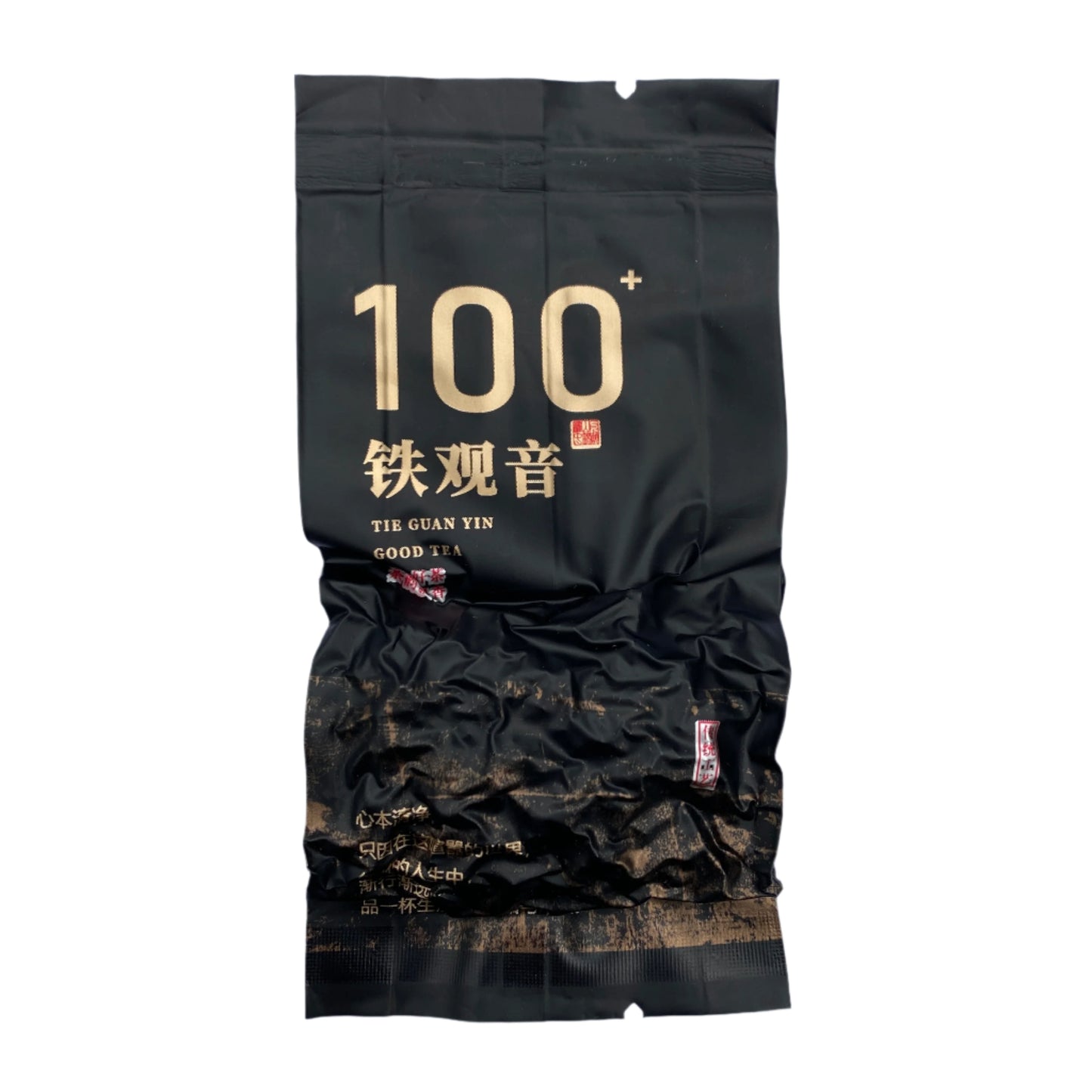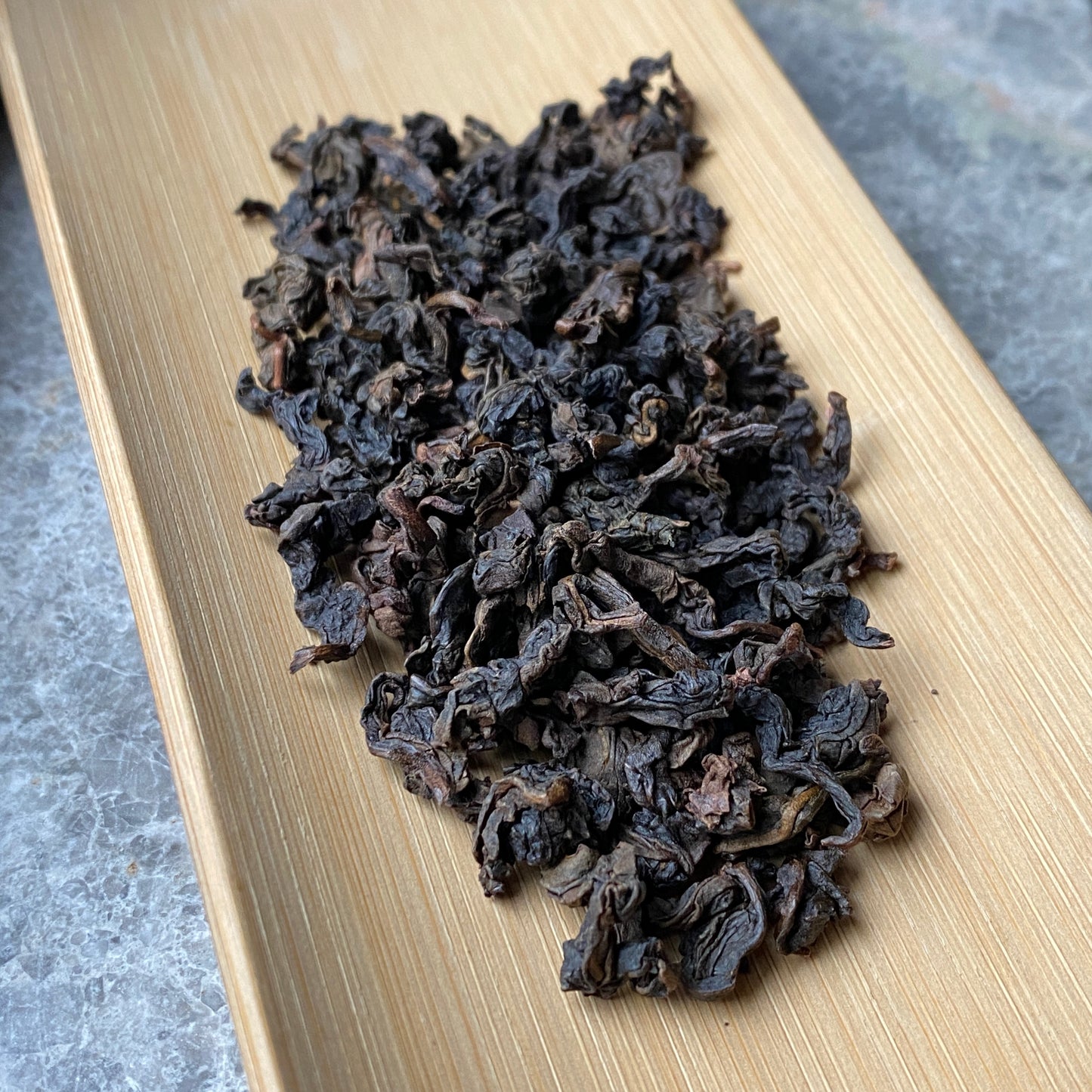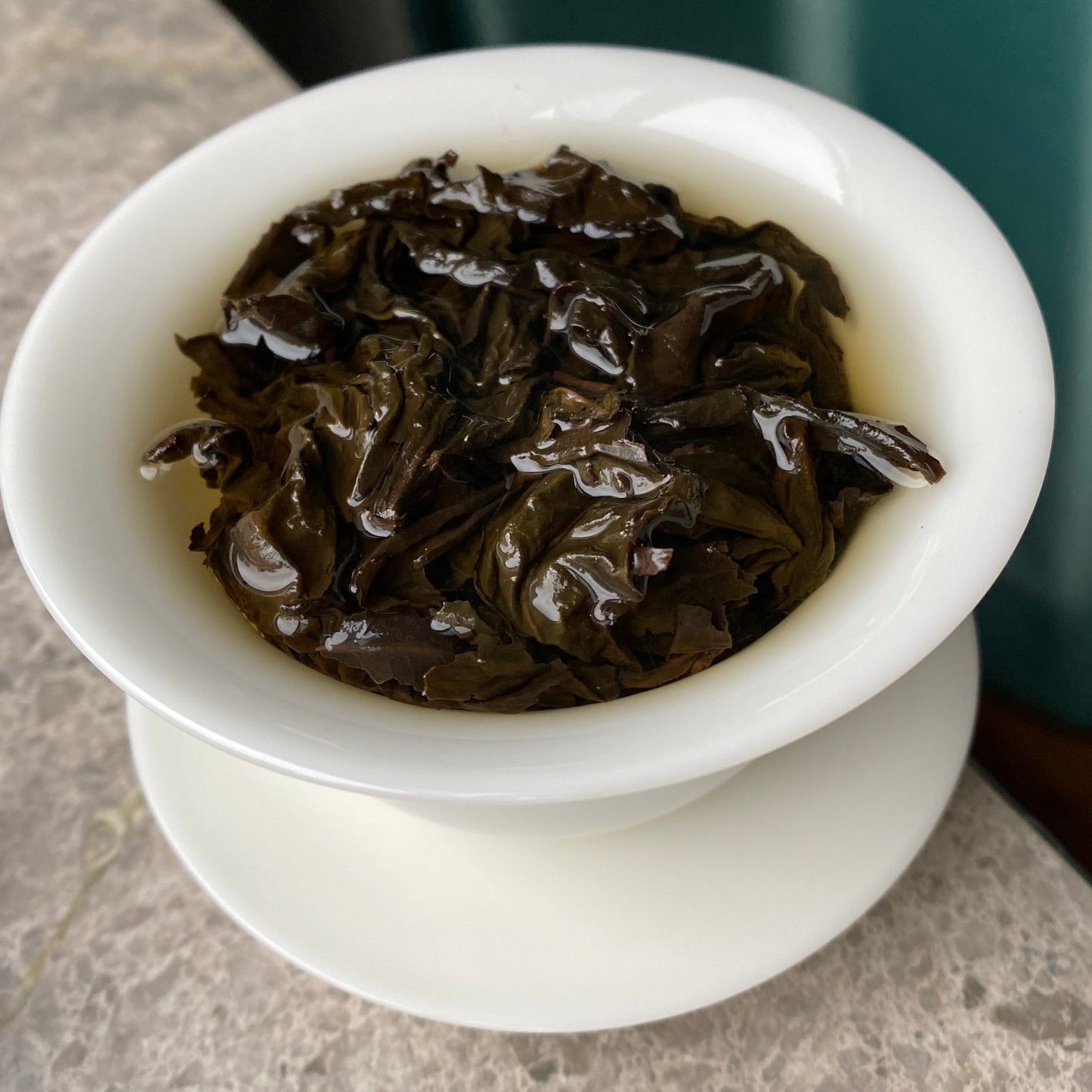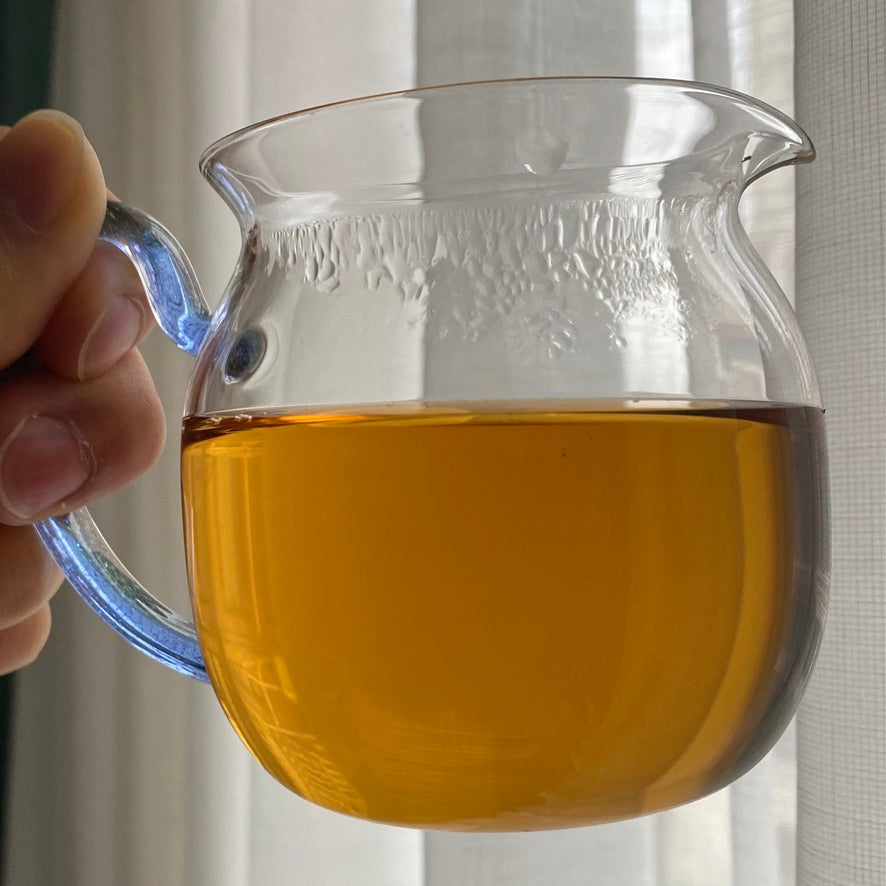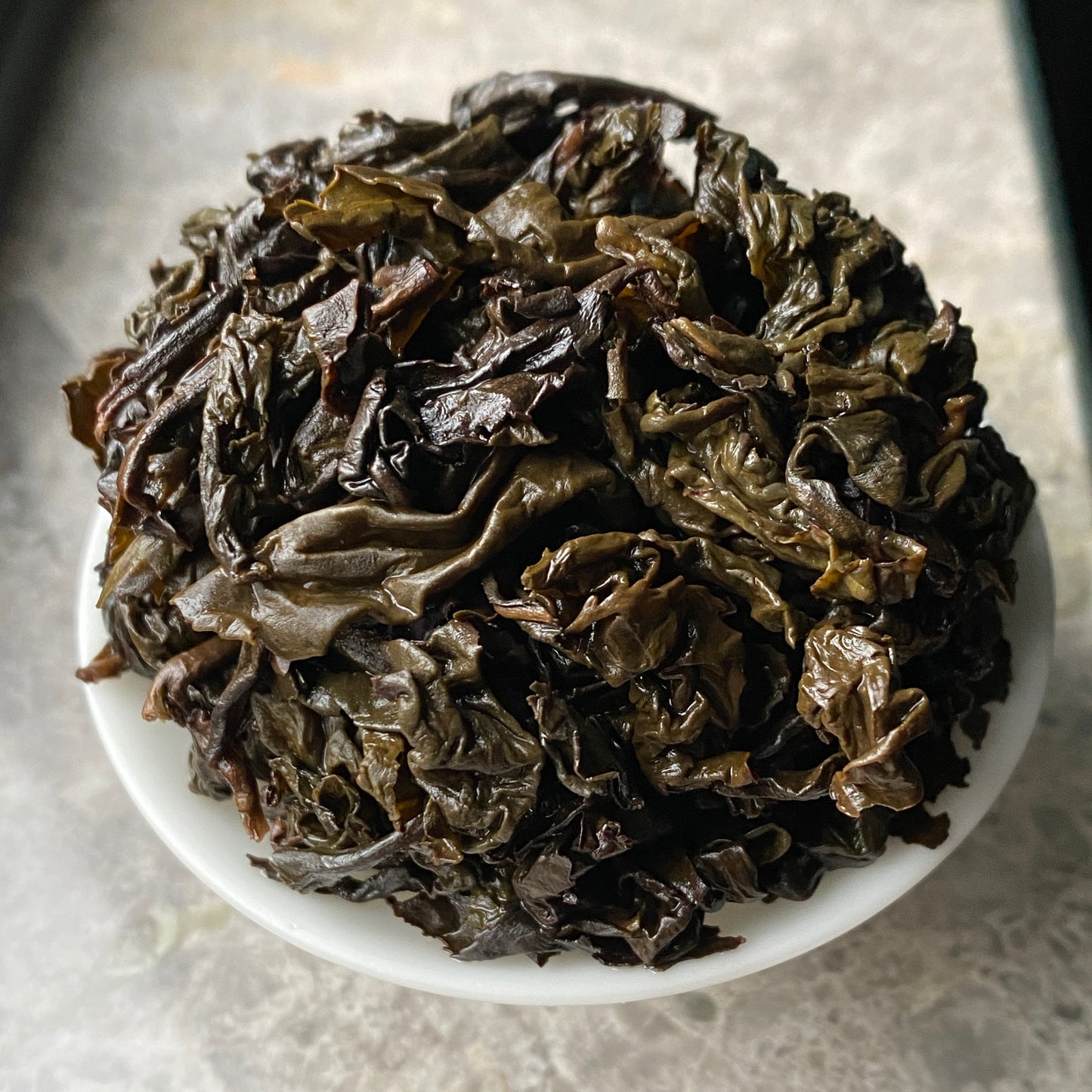Lin Yongyuan
2024 Spring Traditional Style Tie Guan Yin
2024 Spring Traditional Style Tie Guan Yin
2024春传统铁观音
Couldn't load pickup availability
Specifications
Specifications
Origin: Shimen Village, Gande Town, Anxi County, Fujian Province, China
Elevation: 800-1000 m
Cultivar: Hong Xin Wai Wei Tao (Hong Xin Guan Yin)
Harvest time: Spring 2024
Source: Produced by Lin Yongyuan
This Traditional Style Tie Guan Yin, harvested between May 3 and May 8, 2024, reflects the richness and vitality of the spring harvest. Spring Tie Guan Yin is prized for its robust body and smooth texture, as the tea leaves are rich in nutrients accumulated during the winter dormancy. Grown at 800–1000 meters in Gande Town, Anxi County, the tea grows in fertile soil comprising a red-yellow loam surface and a porous subsoil of weathered rock, which provides excellent drainage and aeration.
Unlike the lightly oxidized Zheng Wei style, Traditional Style Tie Guan Yin requires a higher level of oxidation, which brings out its bold and full-bodied character. The production process follows many intricate steps, including withering, tossing and resting to encourage controlled oxidation, and high-temperature fixation to lock in the flavors. After being tightly curled during rolling, the leaves are roasted multiple times using the longan charcoal roasting method, which further enhances their depth and complexity.
The dry leaves are dark, glossy, and tightly curled, releasing a rich aroma of roasted nuts and caramel. When brewed, the tea yields a deep amber liquor with a balanced flavor profile. Notes of nuts, dried fruits, and a hint of minerality unfold with every sip, creating a robust yet harmonious tea experience.
Tie Guan Yin tea came into being around 1725 in Anxi County, with the Hong Xin Wai Wei Tao (Hong Xin Guan Yin) cultivar being its original and pure breed. Known for its distinctive lingering taste and smooth texture, this rare tea requires great care to grow and process. The plant is highly sensitive to its environment, and achieving its signature flavor and aroma involves precise timing at every step of cultivation and processing.
The tea garden is managed using traditional ecological farming methods, ensuring that the plants grow in harmony with their environment. The tea trees are left untrimmed, allowing them to grow naturally alongside other plants, fostering biodiversity and minimizing pests through natural ecological balances. No herbicides, synthetic fertilizers, or toxic pesticides are used, ensuring the leaves remain pure and nutrient-rich, reflecting the pristine conditions of their high-altitude origins.
Share
